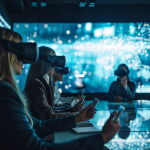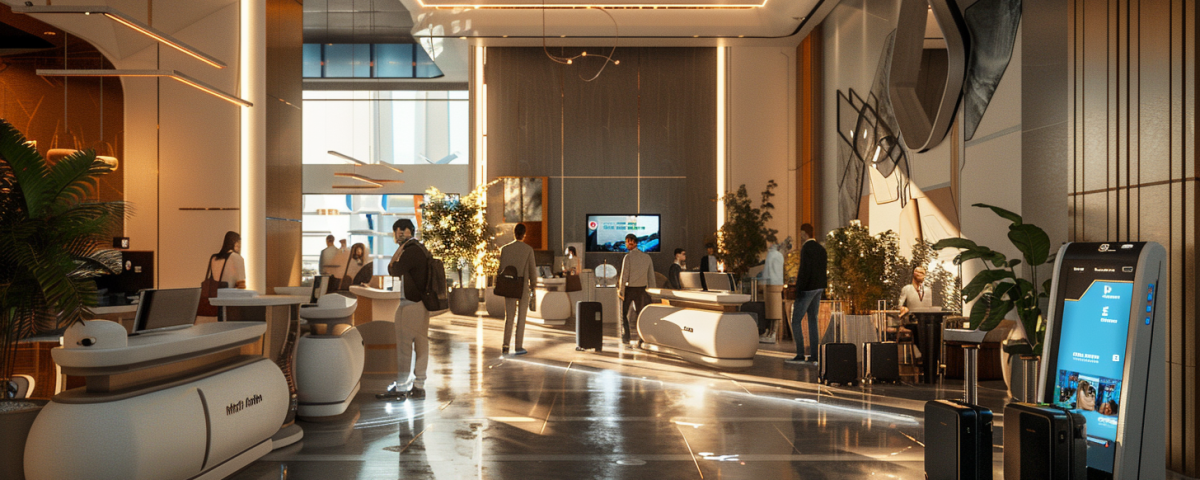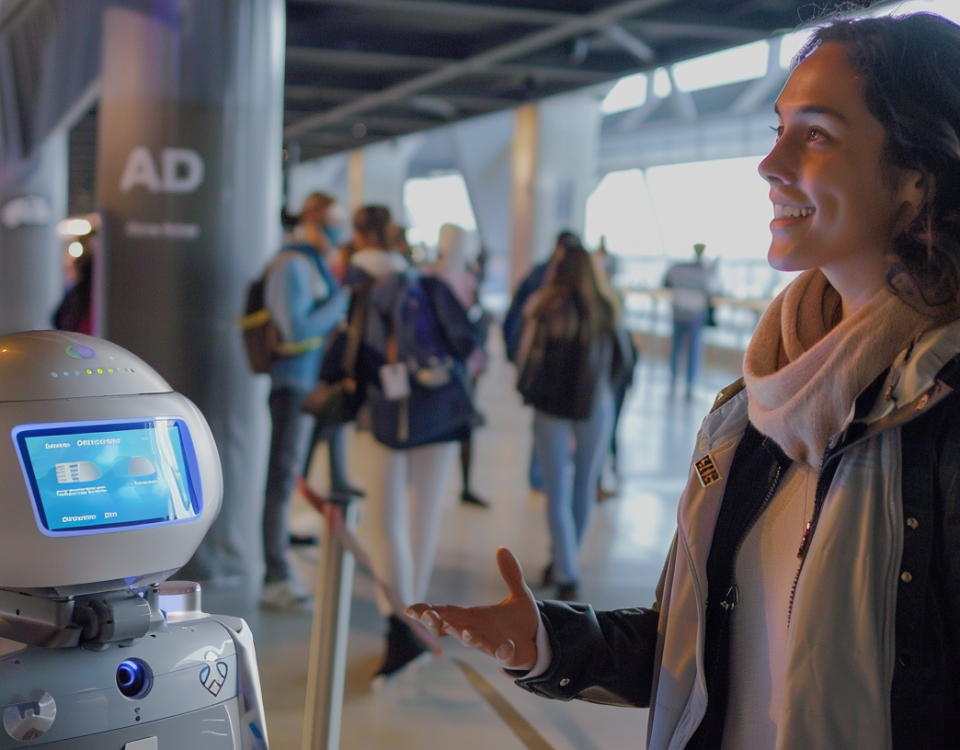
Creation of the Expert Committee of the Artificial Intelligence and Tourism Working Group
06/06/2024
Top 5 AI tools applicable to tourism
12/06/2024The hotel industry is undergoing a major transformation thanks to the integration of artificial intelligence (AI). From database management to customer service, yield management and lobby, AI offers innovative solutions to improve operational efficiency and enrich the customer experience. This post explores the main areas where AI is significantly impacting hotels and their employees. Several of the aspects raised merit in-depth analysis, which will be addressed in subsequent publications.
Revenue and Yield Management
Revenue and yield management are key to maximizing hotel profits. Historically, revenue management relied on the analysis of past trends to predict the future. Today, AI and machine learning optimize pricing algorithms for maximum profitability. AI also makes it possible to identify relevant data from vast sources, modeling customer behavior more accurately and efficiently. These technologies enable real-time offers, adjusting prices and promotions according to current demand and buyer behavior.

Image generated by artificial intelligence (MidJourney)
The number of specialized conferences on the subject has been multiplying in recent months, illustrating the growing interest in this issue among hotel revenue managers. One example is the HSMAI Quebec Association conference on April 11 entitled “Transforming Hospitality: Exploring AI in Revenue, Sales & Marketing”, which highlighted the impact and transformation that AI is already bringing to revenue management.
Customer database management
Hotels collect and store huge amounts of customer data, from booking preferences to post-stay comments. AI makes it possible to analyze this data to predict future customer behavior and personalize offers. For example, AI-based recommendation systems can suggest additional services or promotions tailored to each customer, increasing satisfaction and loyalty.
Analysis of customer feedback
AI enables hotel managers to monitor and analyze customer reviews on platforms like TripAdvisor, Google, and others. Using natural language processing algorithms, hotels can detect trends and sentiments expressed in reviews, enabling rapid reaction to customer concerns and continuous service improvement. This analysis helps managers identify strengths and areas for improvement.

Hotel lobbies and customer service
At hotel reception desks, AI is transforming customer interaction. Chatbots and virtual assistants, available 24/7, manage reservations, answer frequently asked questions and offer personalized recommendations. This automation enables staff to concentrate on more complex tasks requiring a human touch. In addition, it is now possible to use facial recognition systems to facilitate check-in and check-out, offering a fast, contactless experience.
Optimizing operations
AI tools analyze massive volumes of operational data to identify inefficiencies and propose solutions. For example, machine learning algorithms can predict demand for specific services, such as room cleaning or catering, enabling optimal allocation of resources and staff. This not only reduces costs, but also improves service quality.
Personalizing the customer experience
AI enables greater personalization of the customer experience. By analyzing customer preferences and behaviors, hotels can offer tailor-made services and packages. Personalized recommendations for local activities, menu suggestions based on guests’ tastes, and even room personalization (temperature, lighting, etc.) are possible thanks to AI, boosting guest satisfaction and loyalty.
Training and skills development
Integrating AI into the hospitality industry requires staff skills to be updated. Some hotels are already investing in ongoing training to ensure that their employees can make effective use of these new technologies. AI-based e-learning platforms and virtual reality tools offer interactive and immersive training modules, enabling staff to familiarize themselves with new applications and systems.
Conclusion

The adoption of artificial intelligence in hotels is transforming every aspect of their operations, from revenue management to customer experience. By optimizing operations, personalizing services and training staff, AI enables hotels to stay competitive and meet rising customer expectations. As these technologies evolve, their impact on the hospitality industry will only increase, paving the way for even more exciting innovations.
One of the best ways to navigate the complex world of artificial intelligence in tourism is to follow the activities of the Tourism and AI Working Group, and subscribe to the newsletter to keep abreast of the latest advances and opportunities. Register on IATourisme.com
Note: We would like to inform you that artificial intelligence has been used as a tool to help with the content of this article and the creation of images. All published content has been carefully checked, edited and approved by the authors of this article to ensure its quality and relevance.






